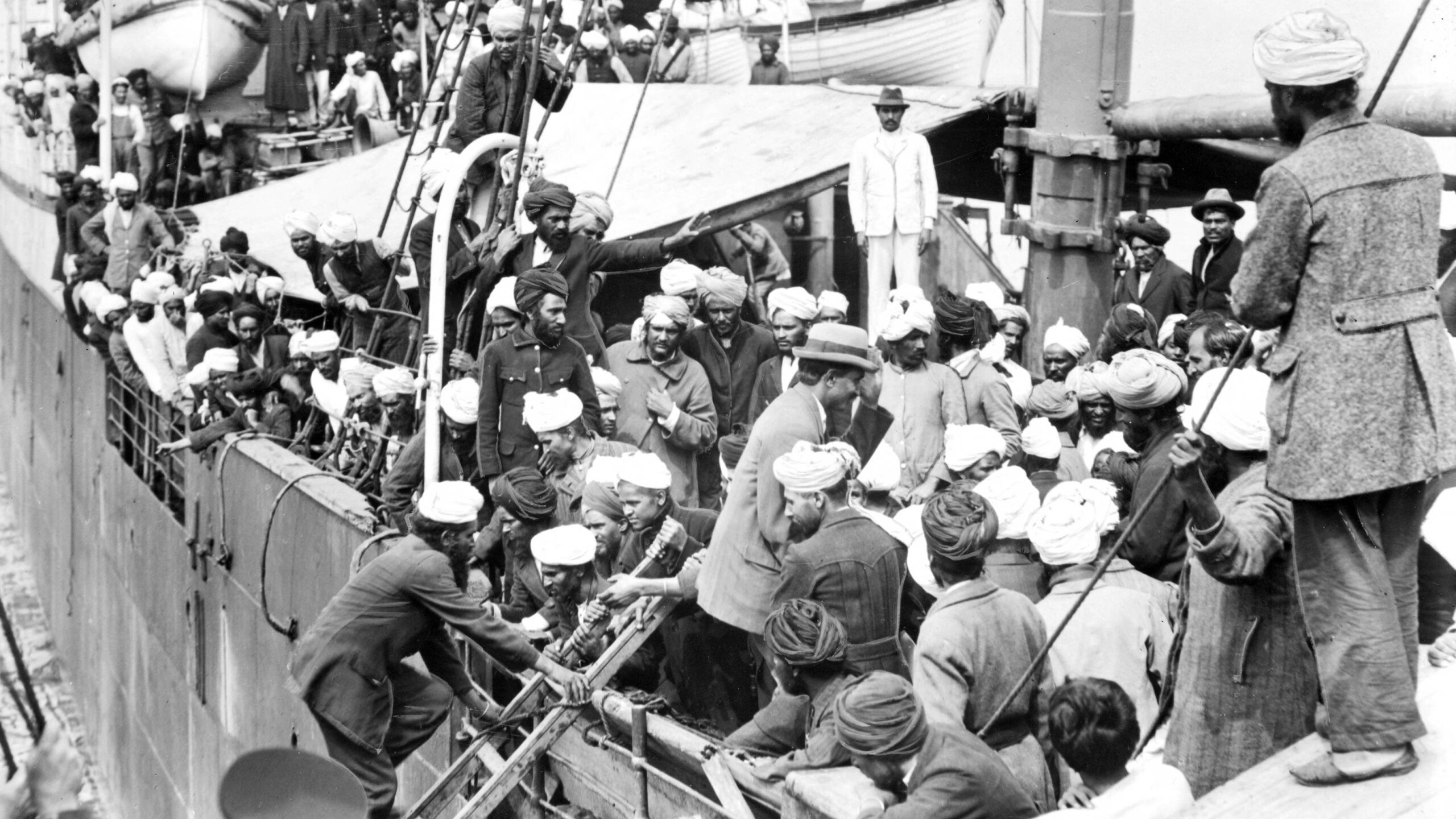Canada’s Sikh community remembers the tragedy of the Komagata Maru on the 110th anniversary of the ship’s passengers denied entry to Canada based on the racist immigration policies at the time.
“It reminds me of the struggles and sacrifices our ancestors faced while seeking a better life. For the community, it symbolizes our resilience and determination,” said Prabhjot Singh, a member of Brampton’s Sikh community. The denial of entry to the 376 passengers turned them back to British India where many were imprisoned or killed.
“It’s a painful chapter in our history but also a testament to our strength,” Singh said.
Despite the formal apology by Prime Minister Stephen Harper in 2008, Singh said more should be done to acknowledge and educate the public about the incident.
“The Canadian government has made important strides in acknowledging the Komagata Maru incident. However, there is always more that can be done. Continuous education and awareness programs are crucial. Including this history in school curriculums and public discourse would help ensure that future generations understand the significance of this event and the importance of combating racism and discrimination,” he stated.
Reflecting on his own experiences as an immigrant, Singh spoke on both progress and ongoing challenges.
“My experience as an immigrant in Canada has been different in many ways. Today, some laws and policies protect the rights of immigrants, and Canada is generally more accepting and diverse. However, challenges still exist, such as instances of racism and cultural misunderstandings,” he said.
Prime Minister Justin Trudeau, in a statement, said the Komagata Maru incident is a dark chapter in Canada’s history and reflected racist and discriminatory laws of the time.
“110 years ago, the steamship Komagata Maru docked in Vancouver’s harbour after a long journey across the Pacific Ocean. Aboard the ship, 376 people – Sikhs, Muslims, and Hindus of Punjabi origin – were ready to start a new life in Canada,” Trudeau said. “But instead of being welcomed as newcomers, they were refused entry by Canada.”
Trudeau said the passengers were detained for two harrowing months without food, water or medical care. Ultimately, the Komagata Maru was forced to return to India, where many of its passengers were killed or imprisoned.
Trudeau said Canada has made significant progress since the incident and has become more multicultural.
“We have come a long way as a country to build a more inclusive, welcoming society for people of all backgrounds. And through initiatives like our Anti-Racism Strategy, we are removing barriers so that everyone in Canada can reach their full potential,” he said.
Kamal Khera, minister of diversity, inclusion and persons with disabilities, spoke about the incident’s broader implications.
“Although past harms cannot be undone, in 2016, Prime Minister Justin Trudeau delivered a formal apology in the House of Commons for the government of Canada’s role in the incident,” Khera said in a statement.
Khera said the government, in remembrance of the Komagata Maru, reasserts its opposition to racism, discrimination and hate and has made investments to address these issues.
“We have committed to historic investments of over $200 million toward Canada’s anti-racism strategies and $173 million toward Canada’s forthcoming first-ever Action Plan on Combatting Hate,” Khera said.
Ahmed Hussen, minister of housing and diversity and inclusion, said South Asian communities have faced struggles. “Despite the tireless efforts of local South Asian communities, the ship was ultimately forced to return to India where many passengers were imprisoned and some killed.”
Hussen said the passengers were told they would not set foot on Canadian soil. This was due to Canada’s immigration policies which were based on racism and discrimination.
Since the incident, Canada has amended its immigration policies to foster ethnocultural and religious diversity.
According to a Statistics Canada survey, 92 per cent of Canada’s population 15 and older agreed that ethnic or cultural diversity is a Canadian value.
As per Statistics Canada, immigrants shape who we are as Canadians. Currently, immigrants make up the largest share of the population than they have in more than 150 years.
“In 2021, more than 8.3 million people, or almost one-quarter of the population, were or had ever been a landed immigrant or permanent resident in Canada,” Statistics Canada said.
The Vancouver City Council announced on May 30, 2024, the secondary naming of the street, Canada Place as Komagata Maru to acknowledge historical discrimination against South Asian communities.
“Today, we remember and honour the lives lost in the Komagata Maru incident. As we pay tribute to the victims, I encourage all Canadians to learn more about the invaluable contributions that members of the South Asian community have made, and continue to make, to Canada,” the Prime Minister said in his statement.

